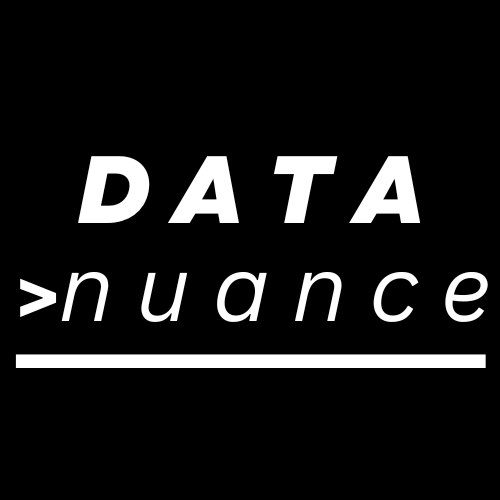Section 17 of the Digital Personal Data Protection Act, 2023
Comprehensive exemptions framework including research, archiving, and statistical purposes
The Digital Personal Data Protection Act, 2023 (DPDP Act) is the first comprehensive data protection legislation of India. Section 17 of the DPDP Act outlines various exemptions on which the provisions of the DPDP Act are not applicable. In other words, it carves out the specific types of data processing activities to which the legislation does not apply. The provision, read in conjunction with Rule 15 of the Draft Digital Personal Data Protection Rules, provides a detailed framework for exemptions, particularly for research, archiving, and statistical purposes.
Section 17 of the DPDP Act carves out several exemptions to the applicability of the legislation. The exemptions can broadly be categorized as follows:
1. Section 17(1) - Partial Exemptions
As per Section 17(1), certain provisions of the DPDP Act (Chapter II, except Sections 8(1) and 8(5), Chapter III, and Section 16) do not apply in the following circumstances:
- Processing necessary for enforcing legal rights or claims
- Processing by courts, tribunals, or regulatory bodies for judicial or quasi-judicial functions
- Processing for prevention, detection, investigation, or prosecution of offenses
- Processing of data of principals outside India under contracts entered by persons in India
- Processing for corporate restructuring approved by competent authorities
- Processing to ascertain financial information of loan defaulters
2. Section 17(2) - Complete Exemptions
Section 17(2) provides for complete exemptions from the applicability of the DPDP Act. These exemptions include:
- Processing by state instrumentalities notified by the Central Government for sovereignty, security, foreign relations, public order, or preventing cognizable offenses
- Processing necessary for research, archiving, or statistical purposes if the data is not used for decisions specific to a Data Principal and follows prescribed standards
3. Section 17(3) - Special Exemptions for Startups and Other Entities
The Central Government can notify certain Data Fiduciaries, including startups, to be exempt from specific provisions (Section 5, Sections 8(3) and 8(7), and Sections 10 and 11).
4. Section 17(4) - Exemption to State in Cases of Certain Processing
For data processing by the State or its instrumentalities, certain provisions (Section 8(7), Section 12(3), and in some cases, Section 12(2)) do not apply.
5. Section 17(5) - Temporary Exemptions
The Central Government can declare any provision of the DPDP Act inapplicable to specific Data Fiduciaries for up to five years from the commencement of the legislation.
Rule 15 of the Draft DPDP Rules elaborates on the exemption outlined in Section 17(2)(b) of the DPDP Act, concerning the processing of personal data for research, archiving, and statistical purposes. This Rule stipulates that the provisions of the DPDP Act are not applicable to such processing, provided it is necessary for these specified purposes and is conducted in accordance with the standards detailed in the Second Schedule of the DPDP Act.
This exemption will play a crucial role for various sectors including:
Academic and Scientific Research
Universities, research institutions, and laboratories can process personal data without complying with the provisions of the legislation.
Historical Archives
Organizations maintaining historical records can process personal data for archival purposes.
Statistical Analysis
Government agencies, market research firms, and other organizations can process data for statistical purposes.
There are several challenges surrounding the exemptions granted under the DPDP Act and the Draft DPDP Rules:
1. Definition Gaps
The DPDP Act and Draft DPDP Rules do not clearly define "research," "archiving," or "statistical purposes." This creates uncertainty regarding:
- Whether medical research, including clinical trials, falls under the "research" exemption.
- The scope of "archiving purposes" and whether it extends to private archives.
- What constitutes a legitimate "statistical purpose"?
2. Safeguard Implementation
While the exemptions provide flexibility, the lack of clear safeguards raises concerns about potential misuse, especially of the complete exemptions under Section 17(2).
3. Government Notification Power
The broad powers granted to the Central Government to notify exemptions under Sections 17(2)(a), 17(3), and 17(5) create potential for expansive interpretation of exemptions.
4. Standards Implementation
The term "standards as may be prescribed" in Section 17(2)(b) needs clear elaboration to ensure the appropriate implementation.
1. Research in Medicine
The research exemption under the DPDP Act may offer benefits to medical research, encompassing clinical trials and health data analysis. However, the lack of a clear definition for "research" introduces ambiguity and potential uncertainty for key sectors such as healthcare institutions and pharmaceutical companies.
2. Academic and Scientific Research
Universities and research institutions benefit from increased operational flexibility under these exemptions. However, it remains critical that these entities ensure data processing activities do not result in decisions specifically impacting individual Data Principals to maintain compliance.
3. Government and National Security
Government bodies benefit from substantial exemptions under Sections 17(2)(a) and 17(4) of the DPDP Act, granting operational flexibility crucial for maintaining national security and conducting law enforcement activities.
Organizations intending to leverage these exemptions should meticulously evaluate their eligibility, maintain thorough documentation of their assessment and the rationale for exemption claims, implement suitable safeguards even when specific requirements are waived, and remain vigilant regarding regulatory updates and guidelines that may offer further clarity on the scope of these exemptions.
As India's data protection framework matures, the interpretation and enforcement of Section 17 will significantly shape the landscape of personal data processing across industries.
Need Help Understanding DPDPA Exemptions?
Our experts can help you determine which exemptions apply to your organization and ensure proper compliance
